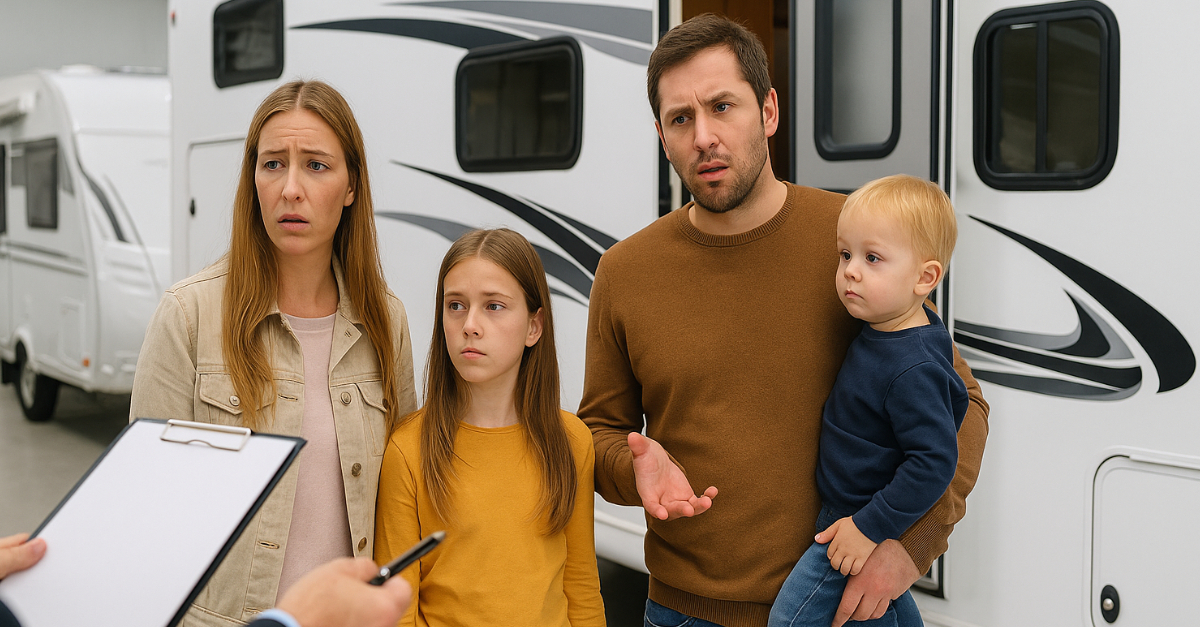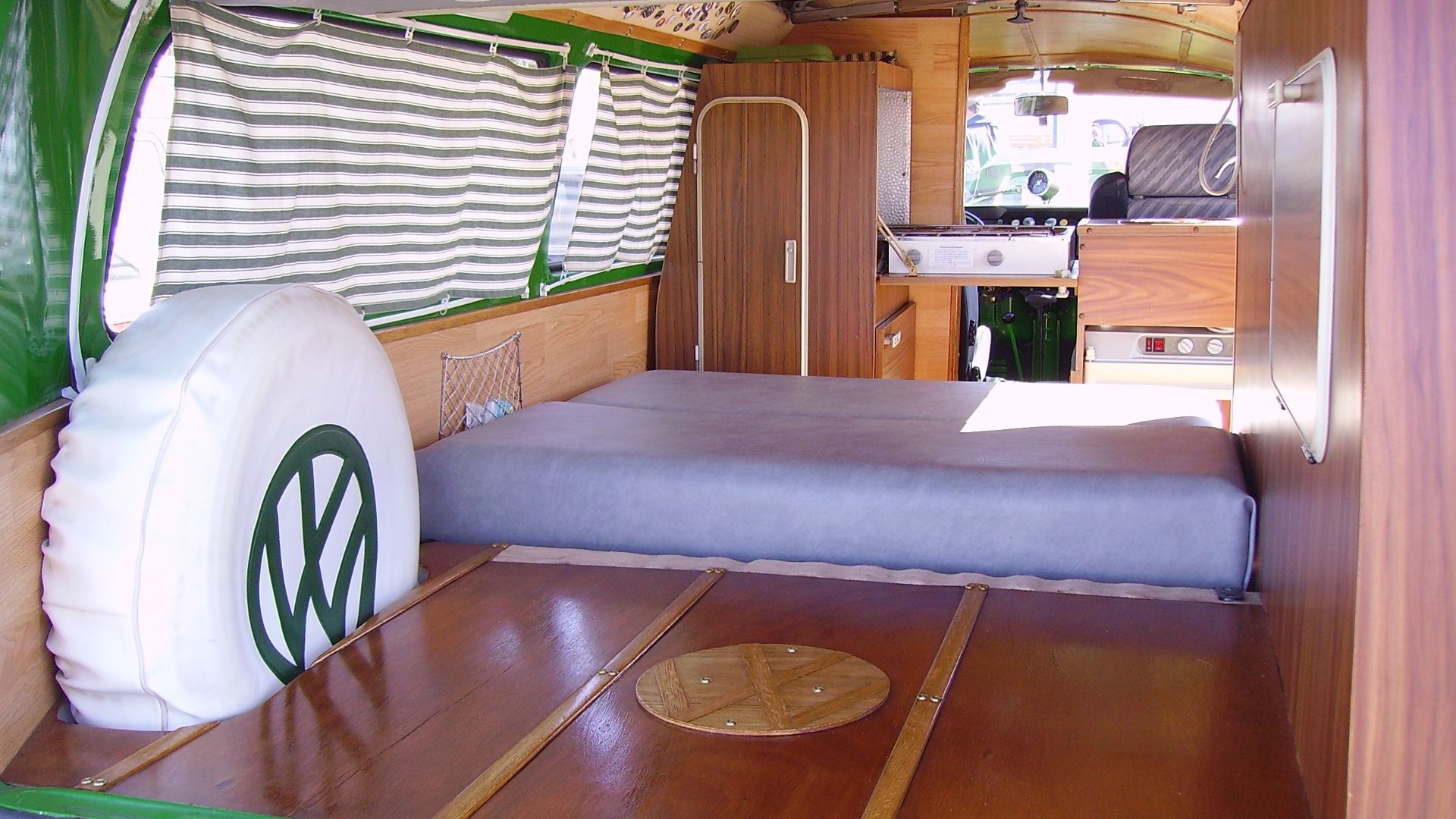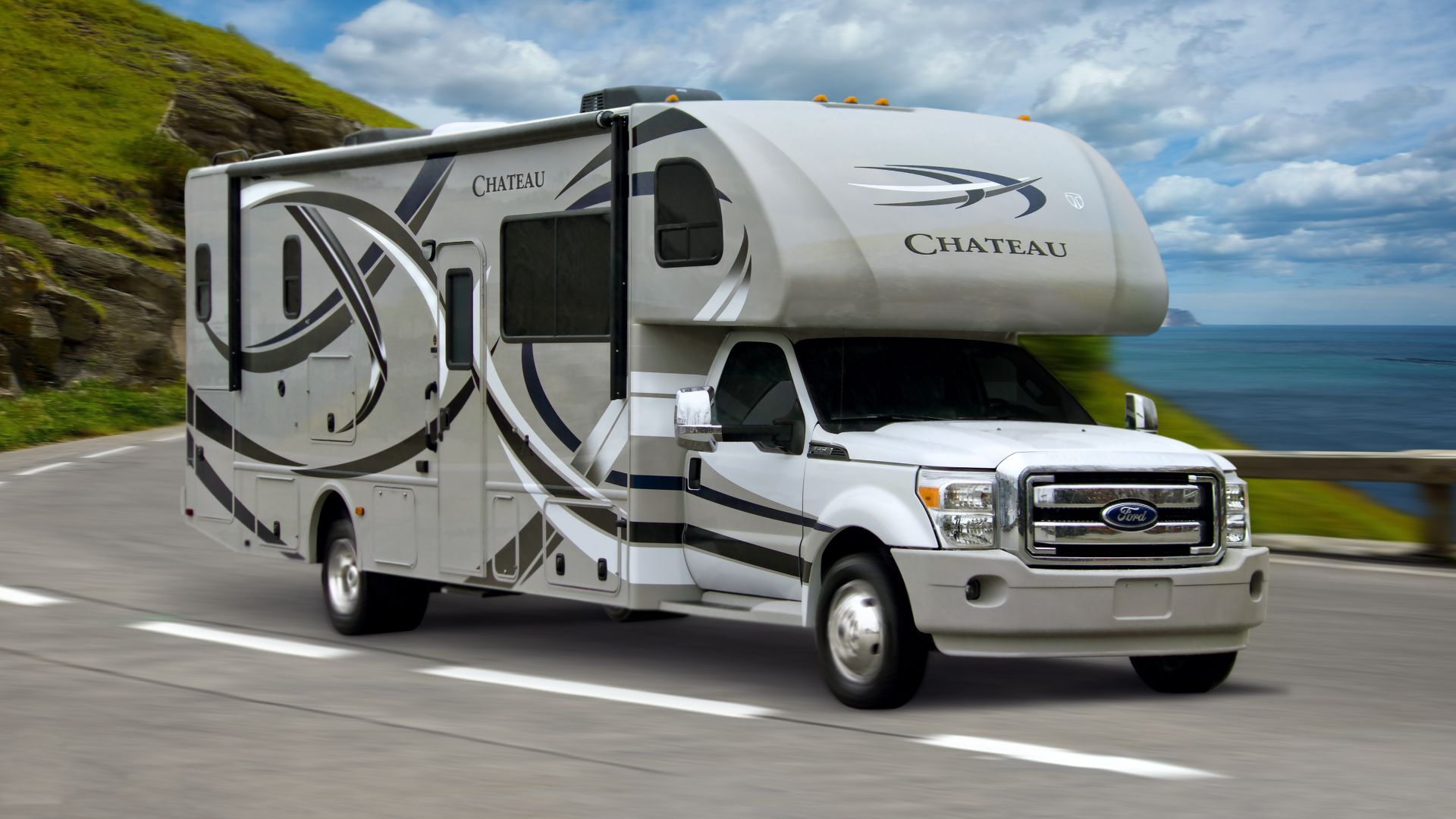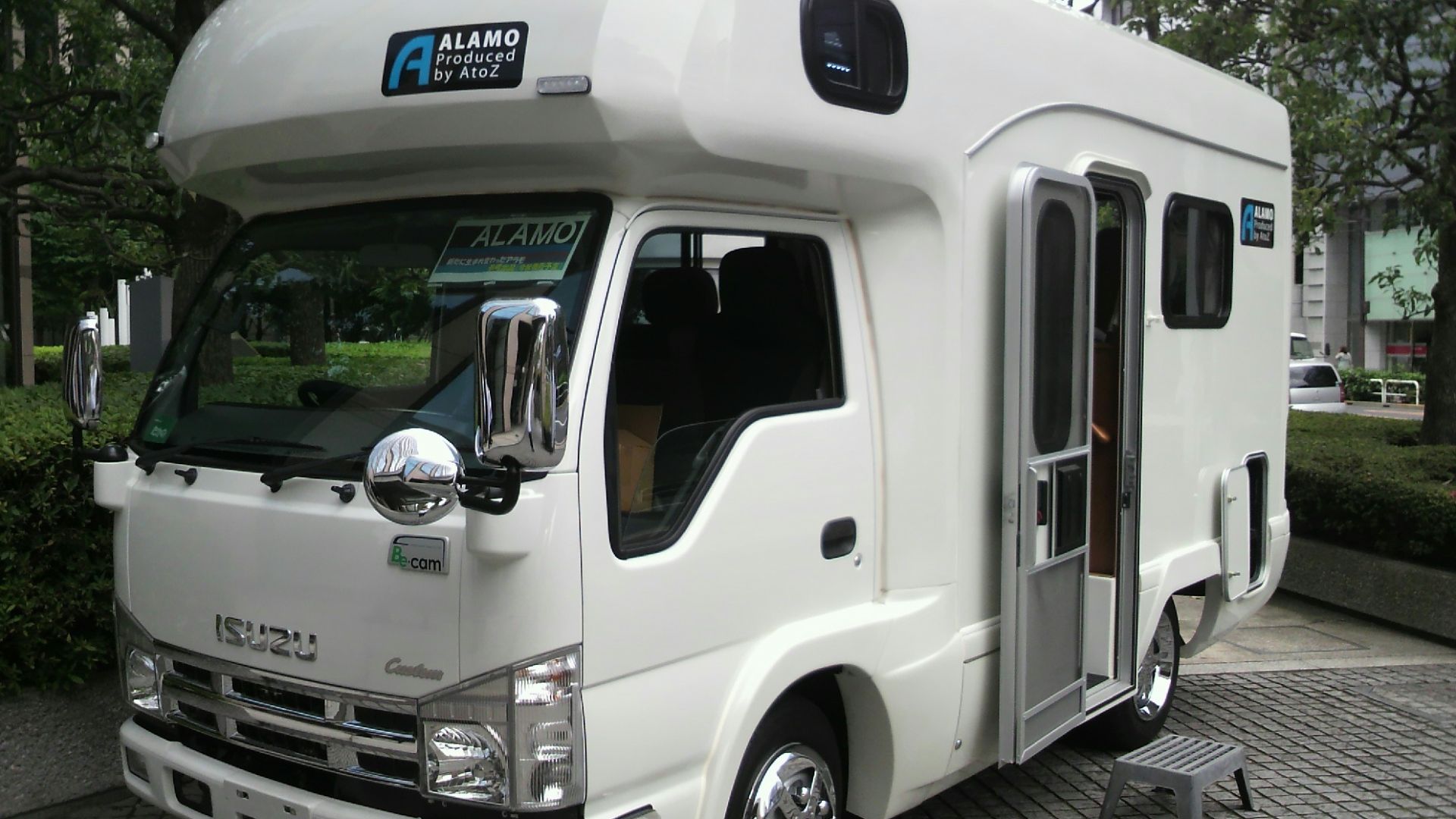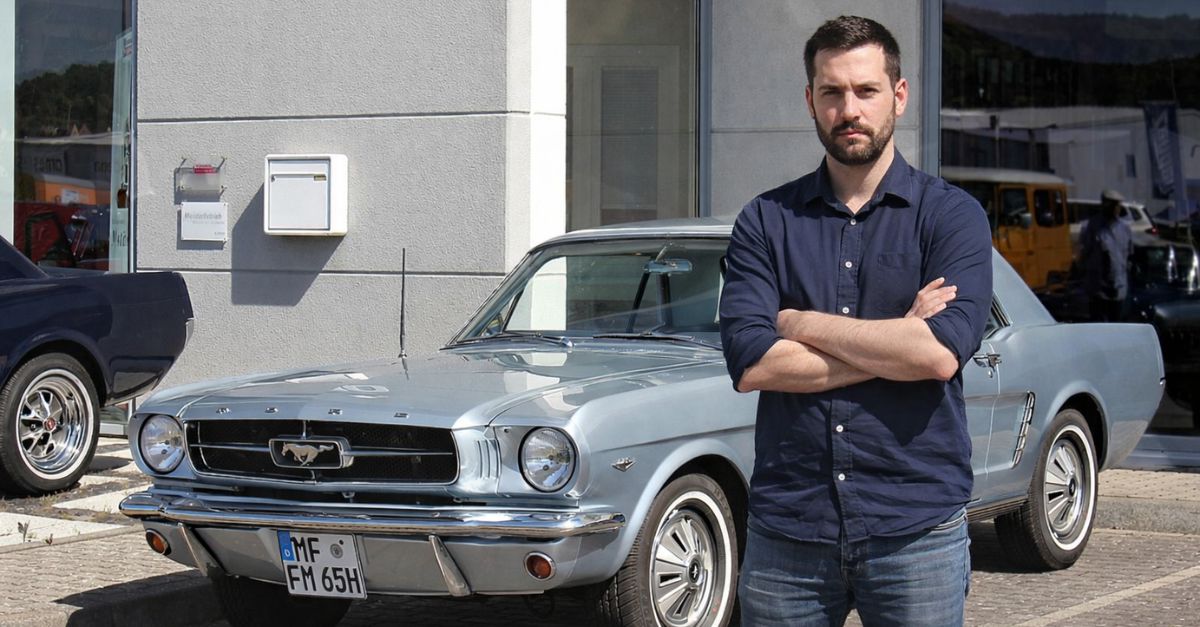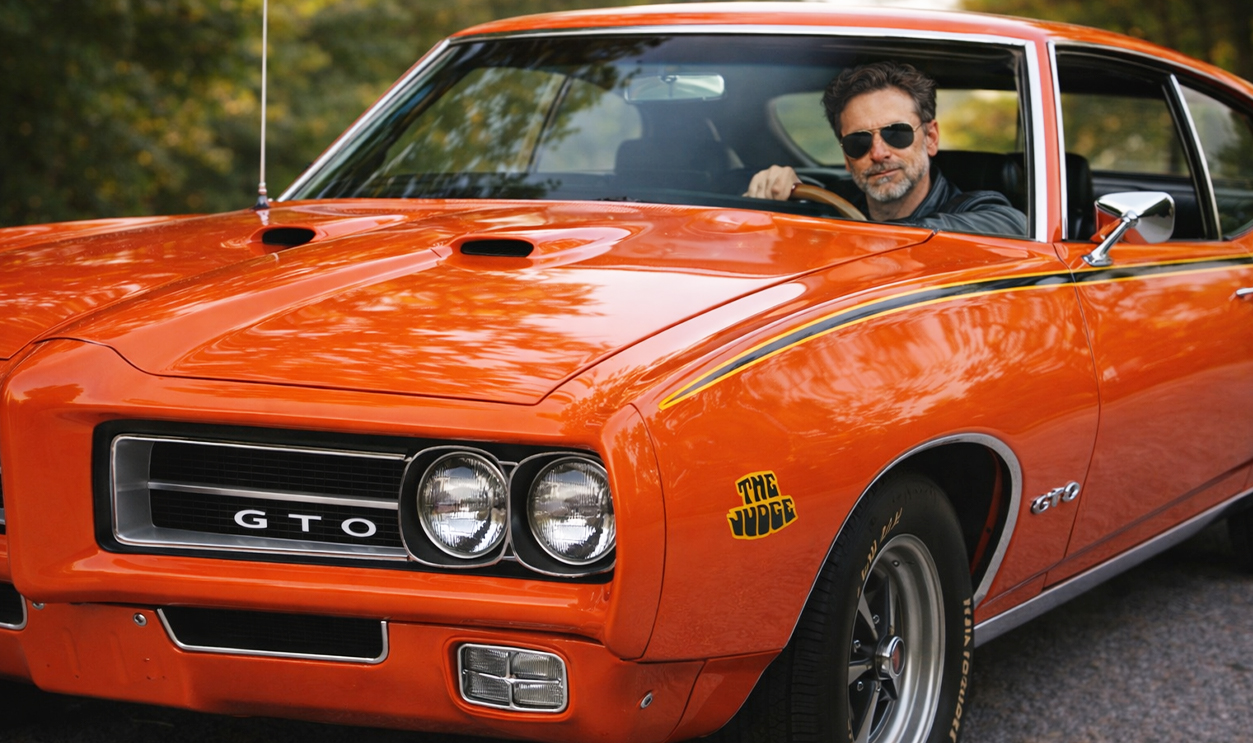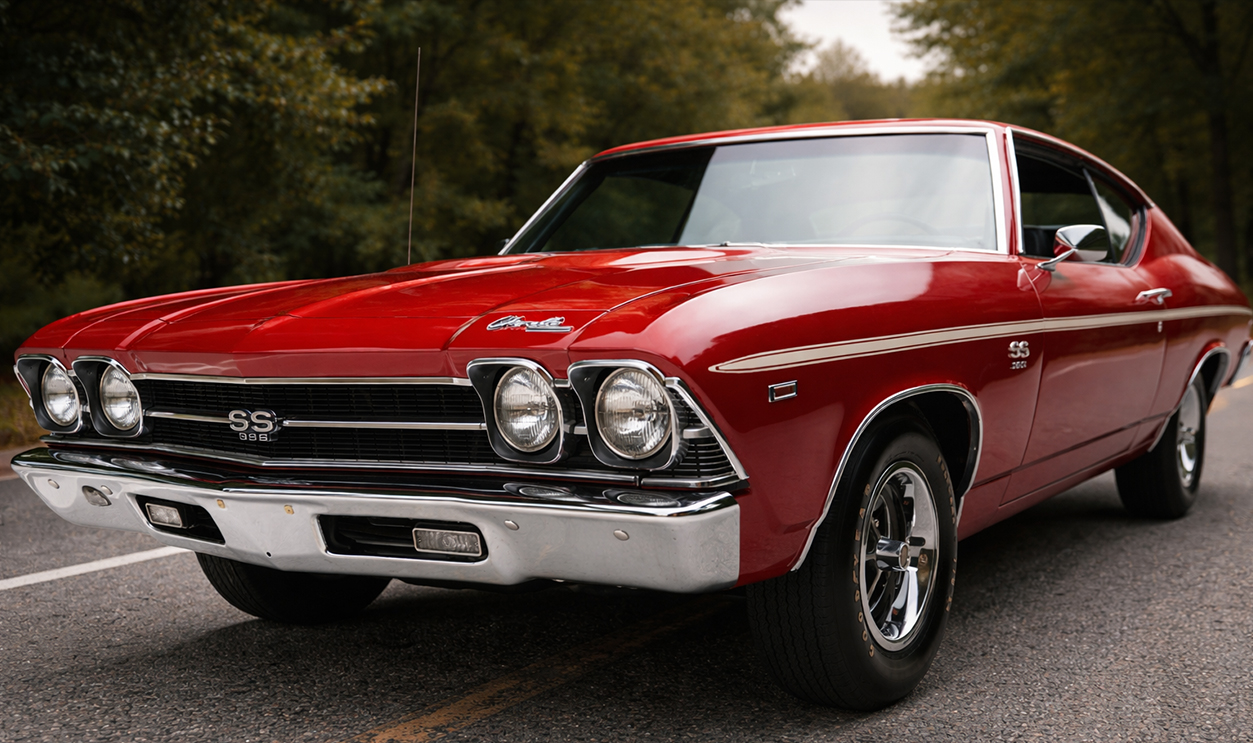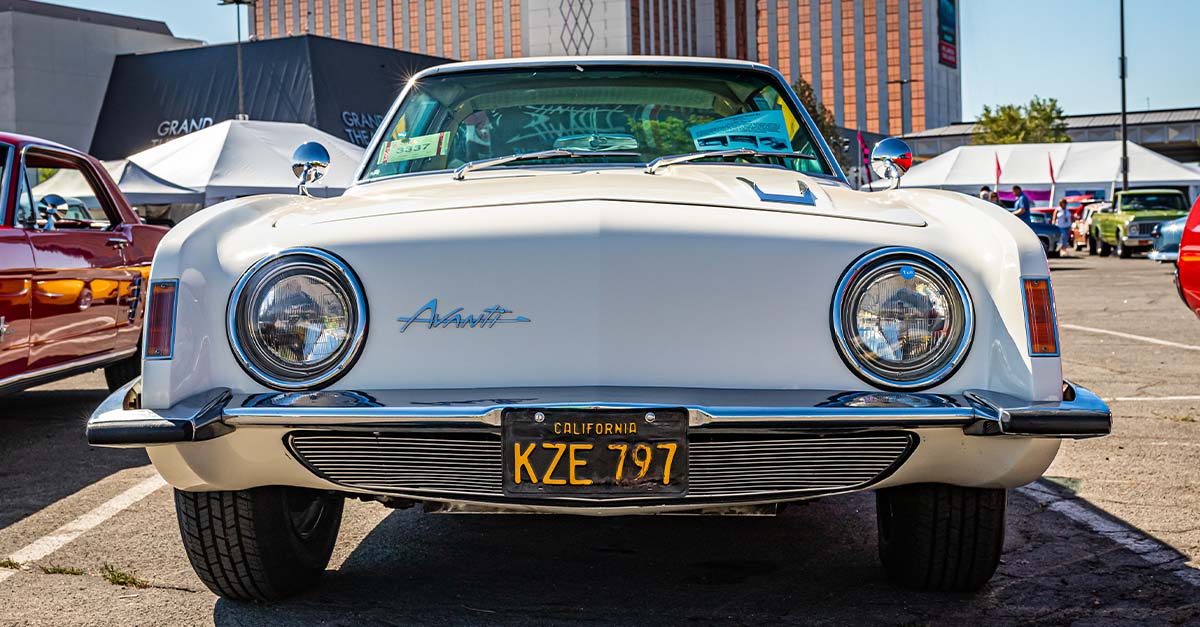Avoid the RV Rookie Mistakes
Thinking about buying an RV and hitting the open road? You’re not alone—millions of Americans are embracing van life, weekend road trips, and extended RV travel.
But with the excitement comes plenty of pitfalls that can turn your dream home-on-wheels into a rolling regret. Whether you’re shopping new or used, planning full-time travel or just the occasional getaway, this list will help steer you clear of the most common buyer mistakes. Buckle up—let’s roll through what not to do.
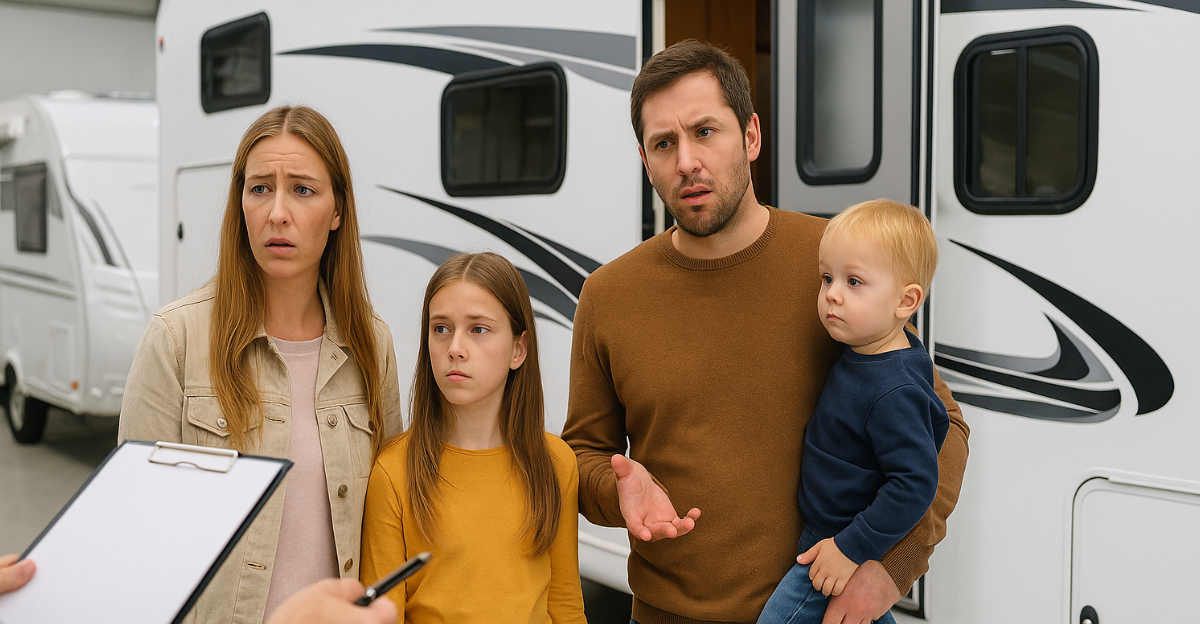
Skipping the Rental Test Drive
Jumping straight into buying without renting first? Rookie move. Renting gives you hands-on experience with different types of RVs—from Class A buses to towable trailers—so you can figure out what actually works for your lifestyle. You may discover you don’t like driving a huge rig or need more space than you thought. Think of renting as your pre-roadtrip boot camp.
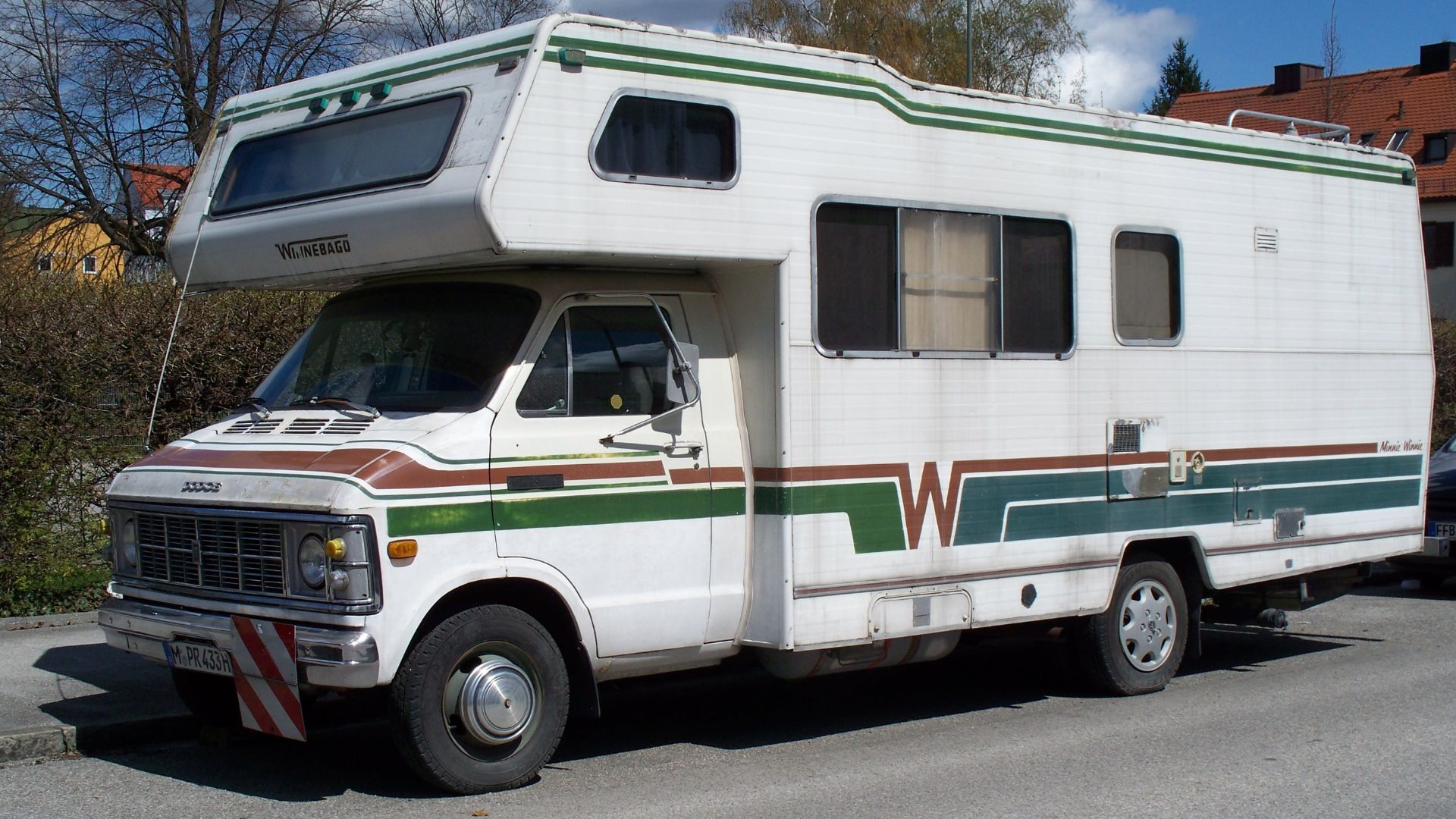 High Contrast, Wikimedia Commons
High Contrast, Wikimedia Commons
Ignoring Tow Vehicle Compatibility
Many new RV owners assume their SUV or truck can tow anything. Spoiler: it can’t. Exceeding your vehicle’s towing capacity is dangerous and can lead to mechanical failure—or void your warranty. Always check the Gross Vehicle Weight Rating (GVWR) and cross-reference it with your vehicle’s towing specs.
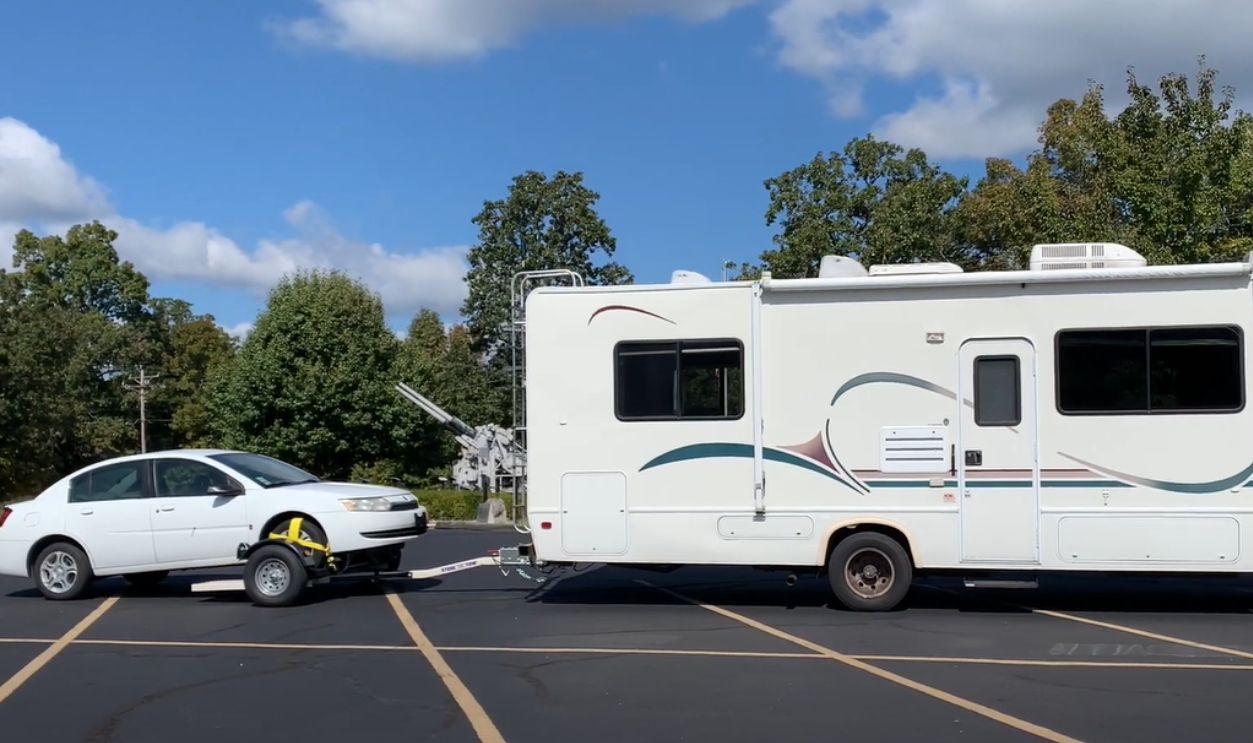 Towing Car Behind RV | First Time Using Tow Dolly - Episode 11, Austin Wilt
Towing Car Behind RV | First Time Using Tow Dolly - Episode 11, Austin Wilt
Underestimating the Costs
You see a sticker price and think, “That’s not bad!”—but the RV lifestyle includes a lot of hidden expenses. Insurance, maintenance, campground fees, storage, fuel, and outfitting your rig with essentials can all add up fast. Budget beyond the sale price, or you’ll be in for a wallet-burning surprise.
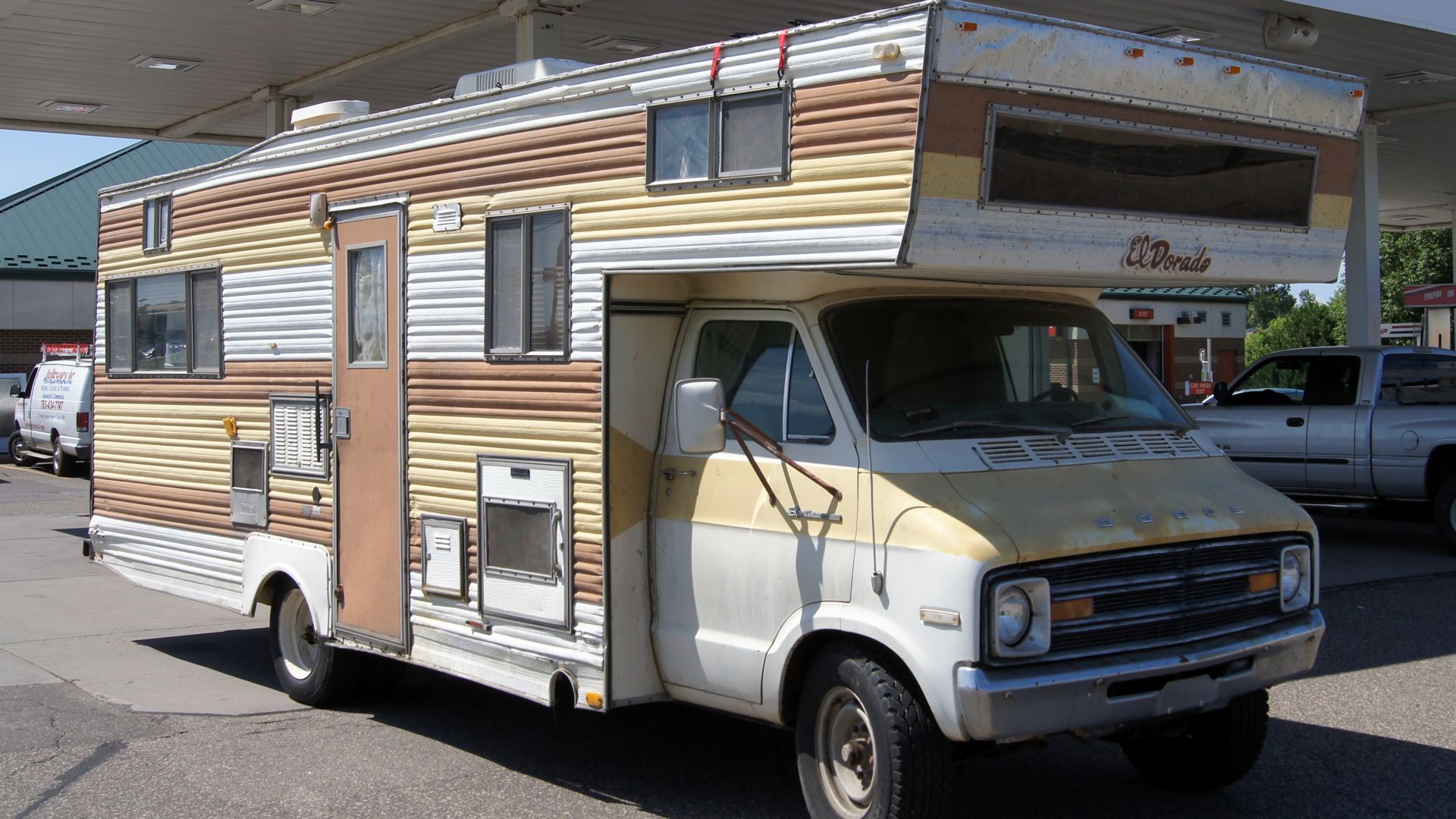 Greg Gjerdingen from Willmar, USA, Wikimedia Commons
Greg Gjerdingen from Willmar, USA, Wikimedia Commons
Not Considering Where You'll Park It
It’s easy to picture your RV parked beside a serene lake—but have you checked if there’s a spot for it? Some neighborhoods ban driveway RV parking, and many campgrounds book up months in advance. If you’re buying a large rig, ensure you have a reliable place to park and store it when it’s not in use.
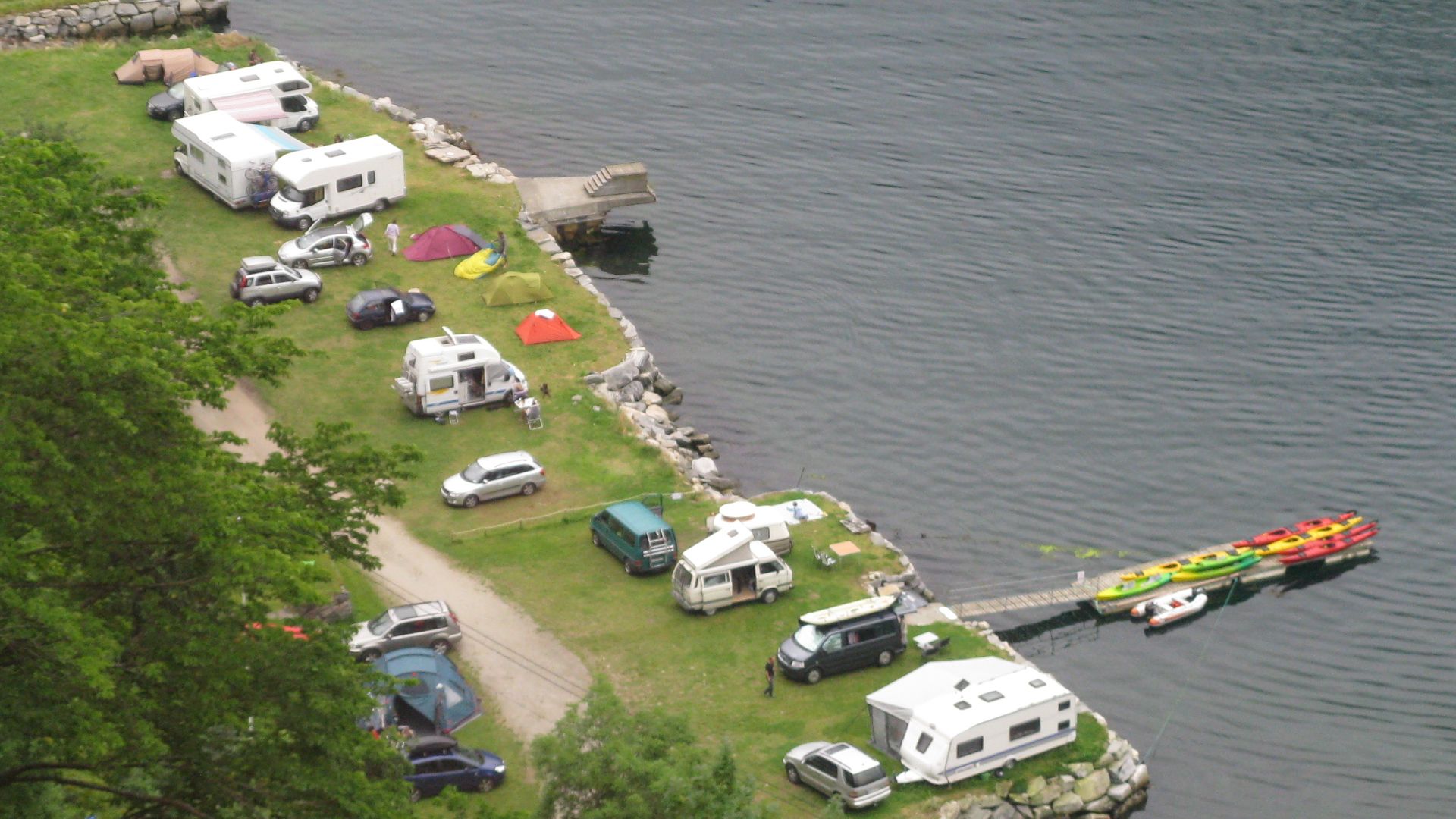 Yair-haklai, Wikimedia Commons
Yair-haklai, Wikimedia Commons
Choosing Size Over Functionality
Bigger isn’t always better. Large RVs offer space but can be a nightmare to maneuver, park, and maintain. Consider how much interior space you really need versus how much mobility and access you’ll want. A more compact RV may provide a better balance of comfort and convenience.
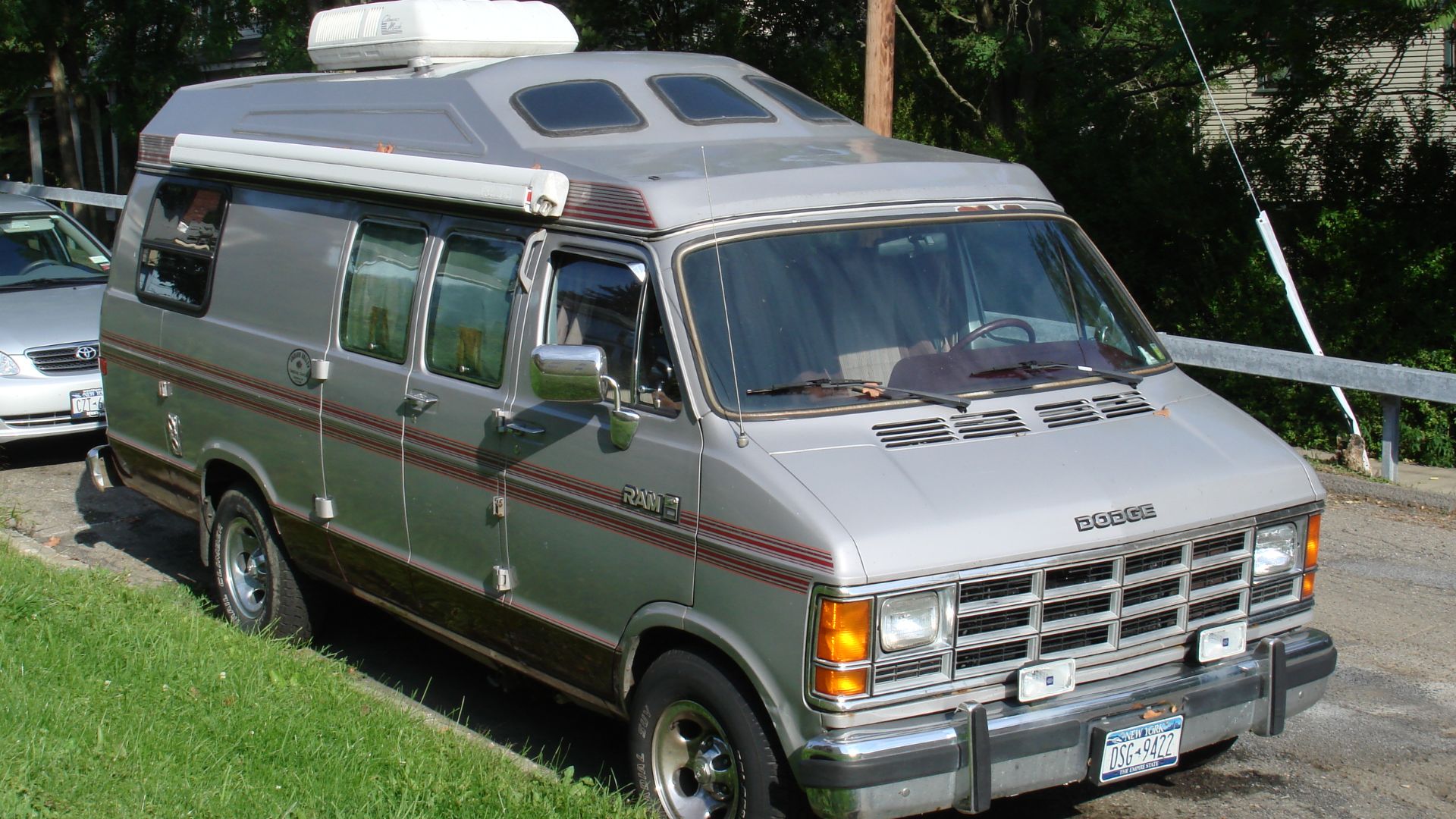 Stilfehler 19:39, 8 October 2007 (CEST), Wikimedia Commons
Stilfehler 19:39, 8 October 2007 (CEST), Wikimedia Commons
Overlooking Floor Plan Practicality
A fancy floor plan might look great in photos but feel awkward in real life. Are the beds comfortable? Is the bathroom usable? Can people move around without bumping into each other? Always do a walk-through and picture daily living—especially if you’ll be RVing full-time.
Buying Without a Pre-Purchase Inspection
Even brand-new RVs can have manufacturing defects. And used ones? They might be hiding water damage, electrical issues, or worn-out components. Hire an independent inspector before sealing the deal. Think of it as a home inspection—for your home on wheels.
Forgetting to Test Everything
You’d be shocked how many buyers forget to test the fridge, water pump, heater, A/C, slide-outs, and generator. Turn everything on and off. Flush toilets. Run faucets. Listen for weird sounds. If it’s supposed to work, make sure it does—before you drive away.
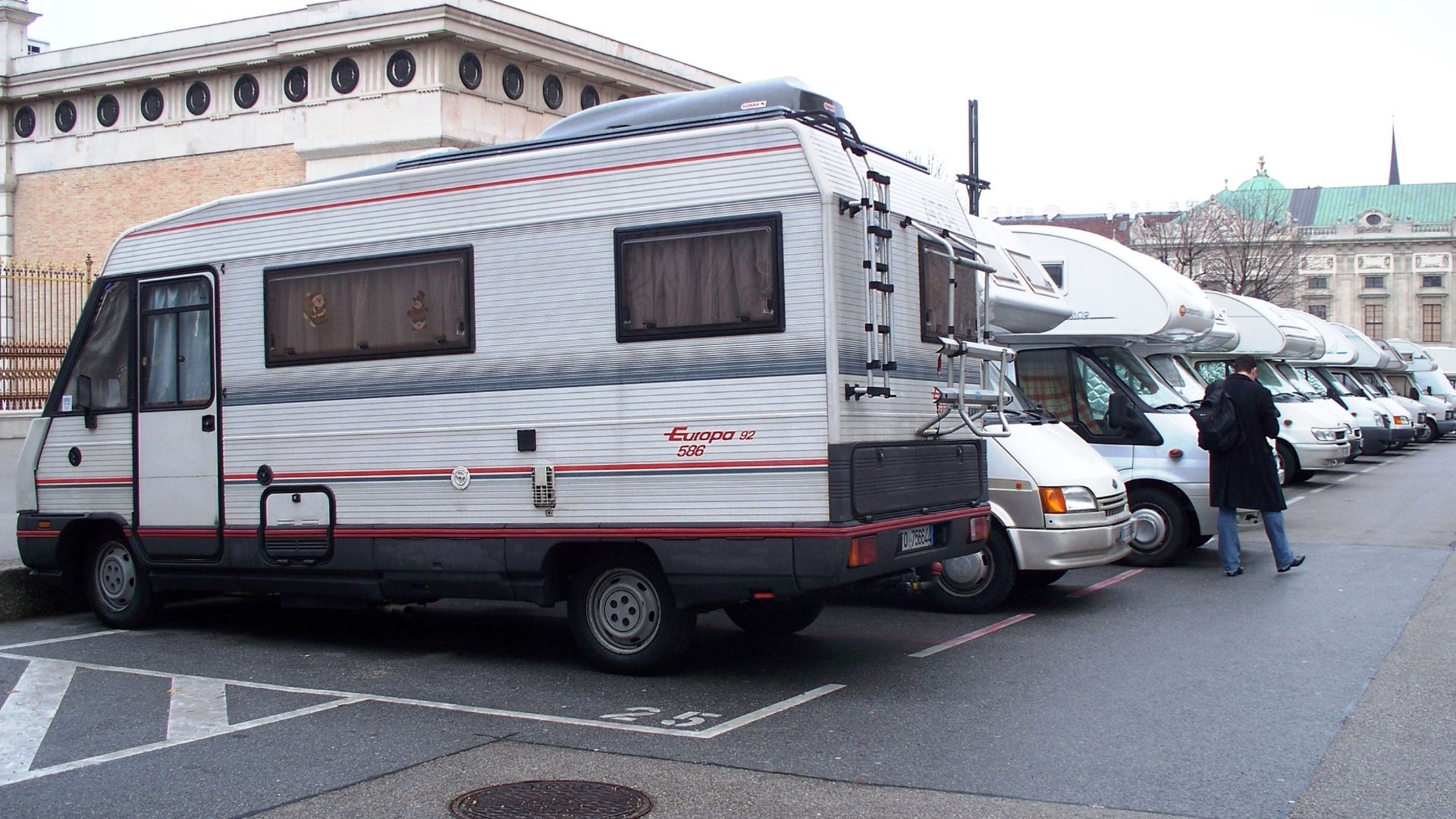 High Contrast, Wikimedia Commons
High Contrast, Wikimedia Commons
Financing Without Comparing Rates
Don’t just take the dealership’s financing offer as gospel. RV loans often come with higher interest rates and longer terms than auto loans. Shop around with banks, credit unions, and online lenders. You could save thousands over the life of the loan.
Not Factoring in Depreciation
RVs depreciate faster than most cars—especially new ones. The moment you drive it off the lot, its value drops significantly. If you plan to sell or trade it in a few years, understand that you may not recoup much of your investment.
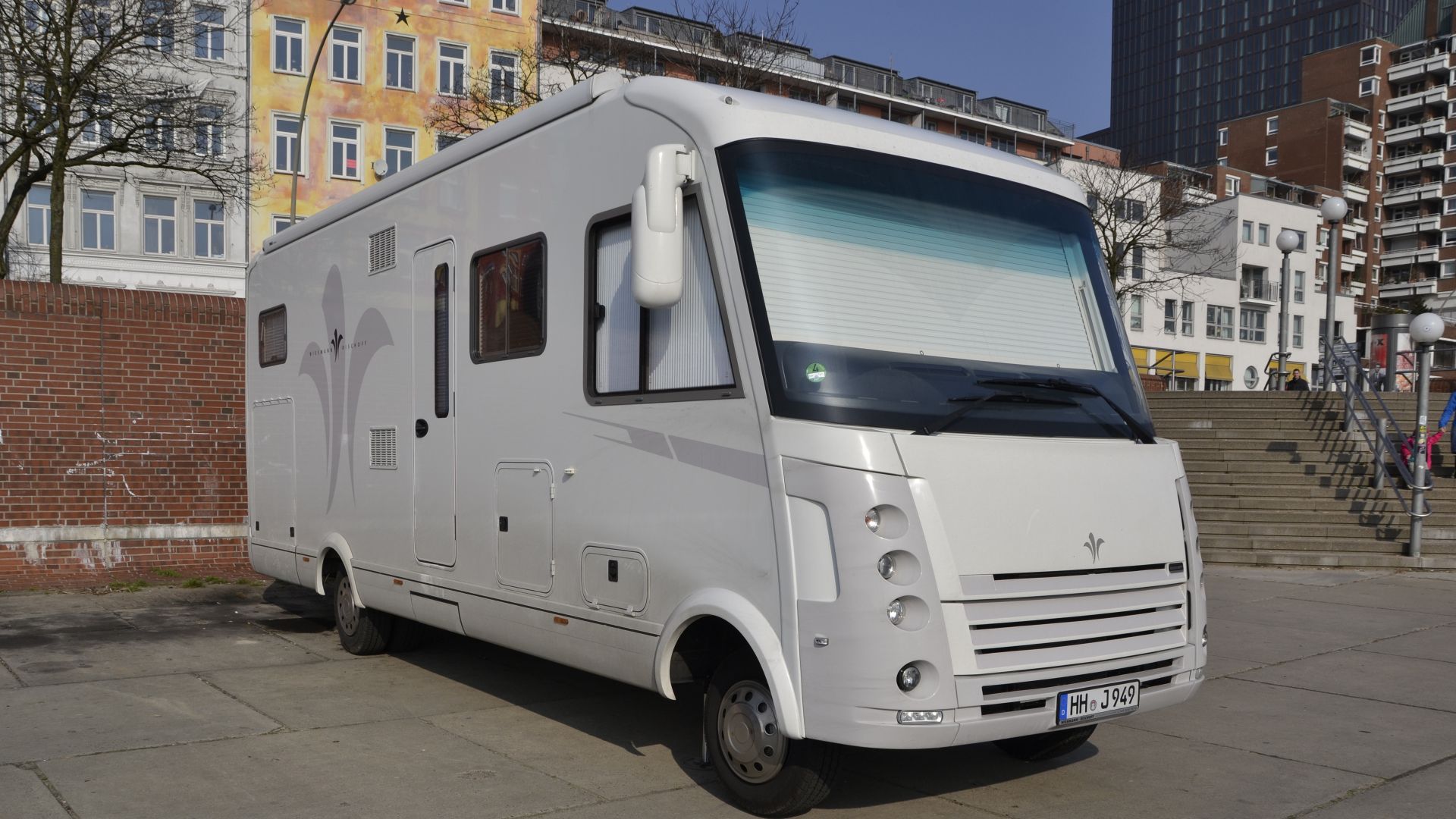 User:High Contrast, Wikimedia Commons
User:High Contrast, Wikimedia Commons
Overpacking for the First Trip
Stuffing your RV with every kitchen gadget and backup jacket “just in case”? That’s a fast way to clutter your space and overload the rig. Pack lightly for your first few trips—you’ll quickly learn what you really need (and what’s just taking up room).
Not Researching the Brand
All RV brands are not created equal. Some have better build quality, customer service, or resale value than others. Spend time on RV forums, YouTube reviews, and Facebook groups to see what actual owners are saying about the brands you're considering.
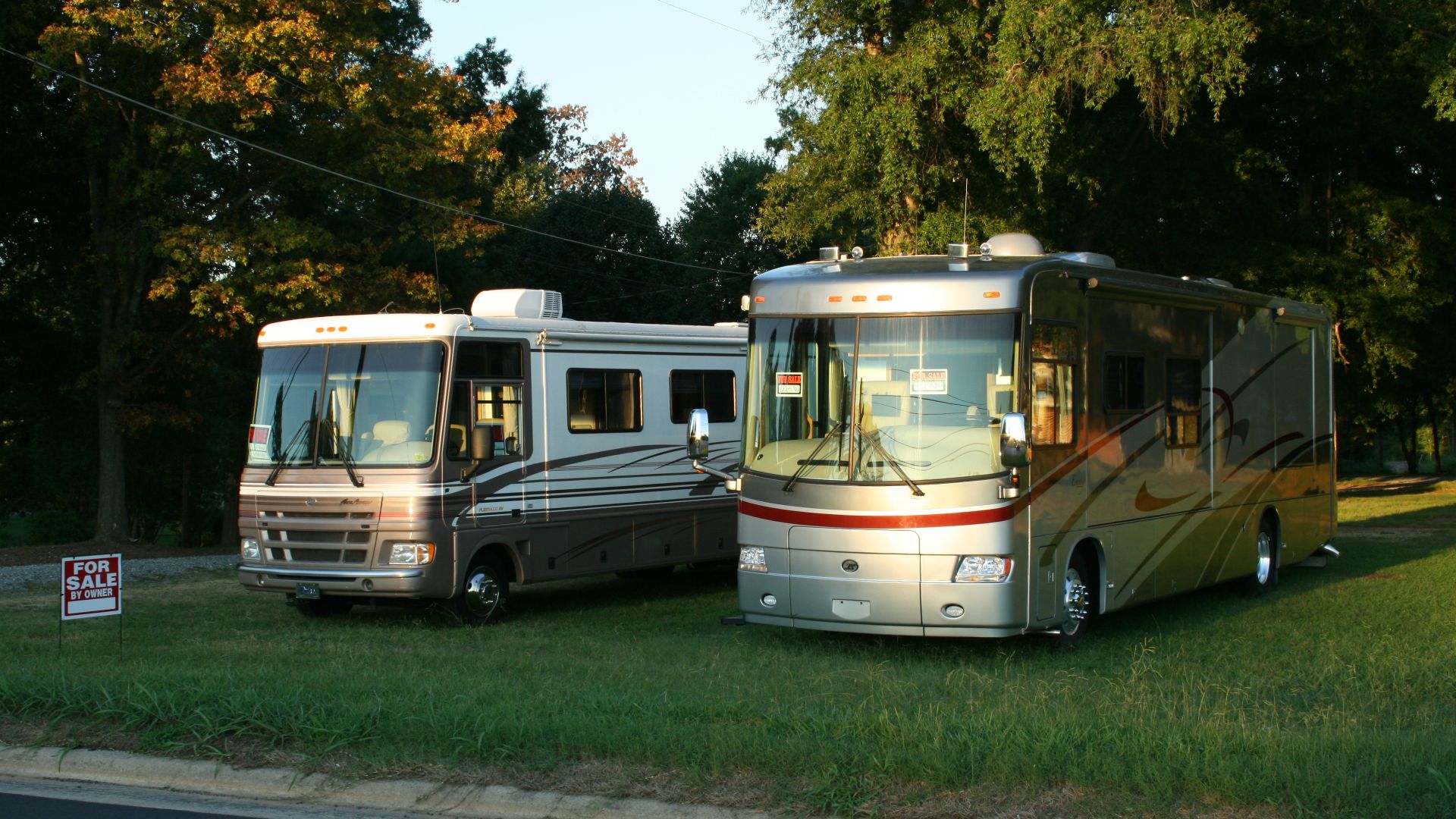 Ildar Sagdejev (Specious), Wikimedia Commons
Ildar Sagdejev (Specious), Wikimedia Commons
Forgetting About Maintenance Accessibility
That sleek design might look nice, but if you can’t easily access plumbing or electrical systems for maintenance, repairs will be a headache. Look under beds, in cabinets, and behind panels to make sure the critical stuff is reachable without a wrench and a prayer.
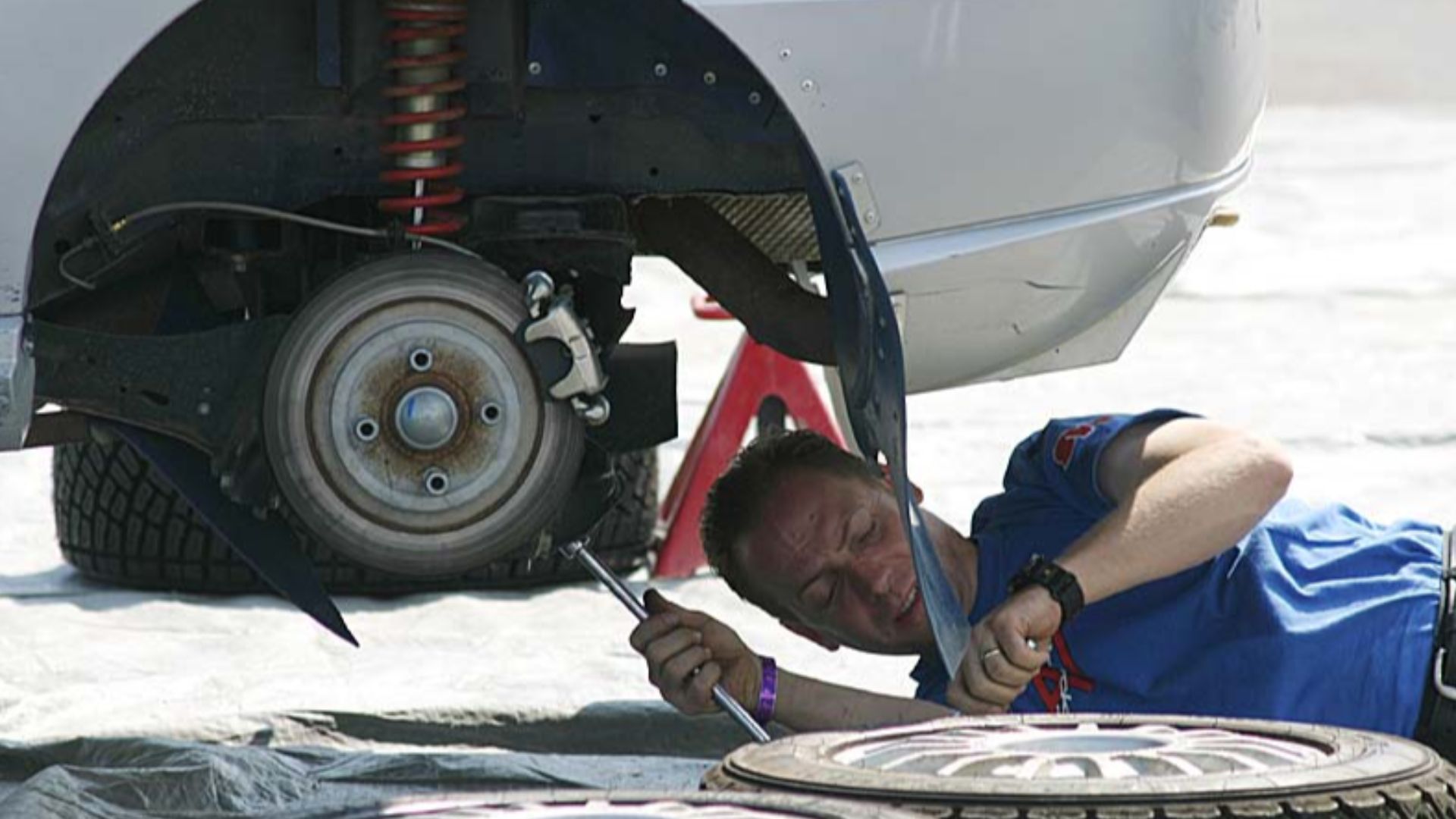 User Interiot on en.wikipedia, Wikimedia Commons
User Interiot on en.wikipedia, Wikimedia Commons
Buying Based on Emotion
Falling in love with the look of an RV can cloud your judgment. Always lead with logic: Can you afford it? Does it fit your needs? Will it work where you want to travel? Romanticizing the lifestyle is fine—just don’t let it guide a major purchase.
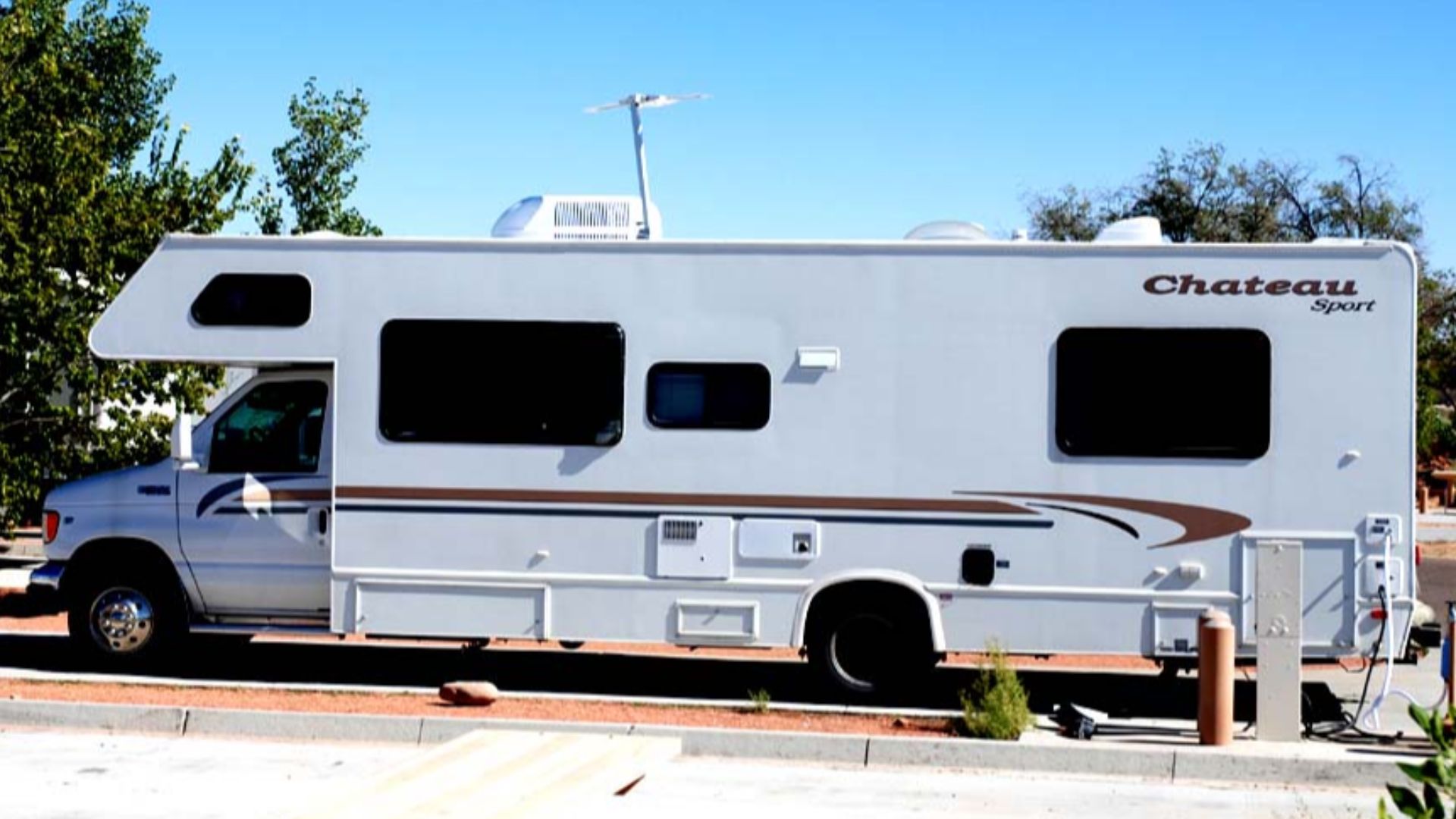 Bill W Ca at English Wikipedia, Wikimedia Commons
Bill W Ca at English Wikipedia, Wikimedia Commons
Neglecting Warranty Details
What does the warranty actually cover—and for how long? Many new RV warranties are surprisingly short or exclude common issues like water damage. Ask specific questions, read the fine print, and don’t assume you’re protected just because it’s “new.”
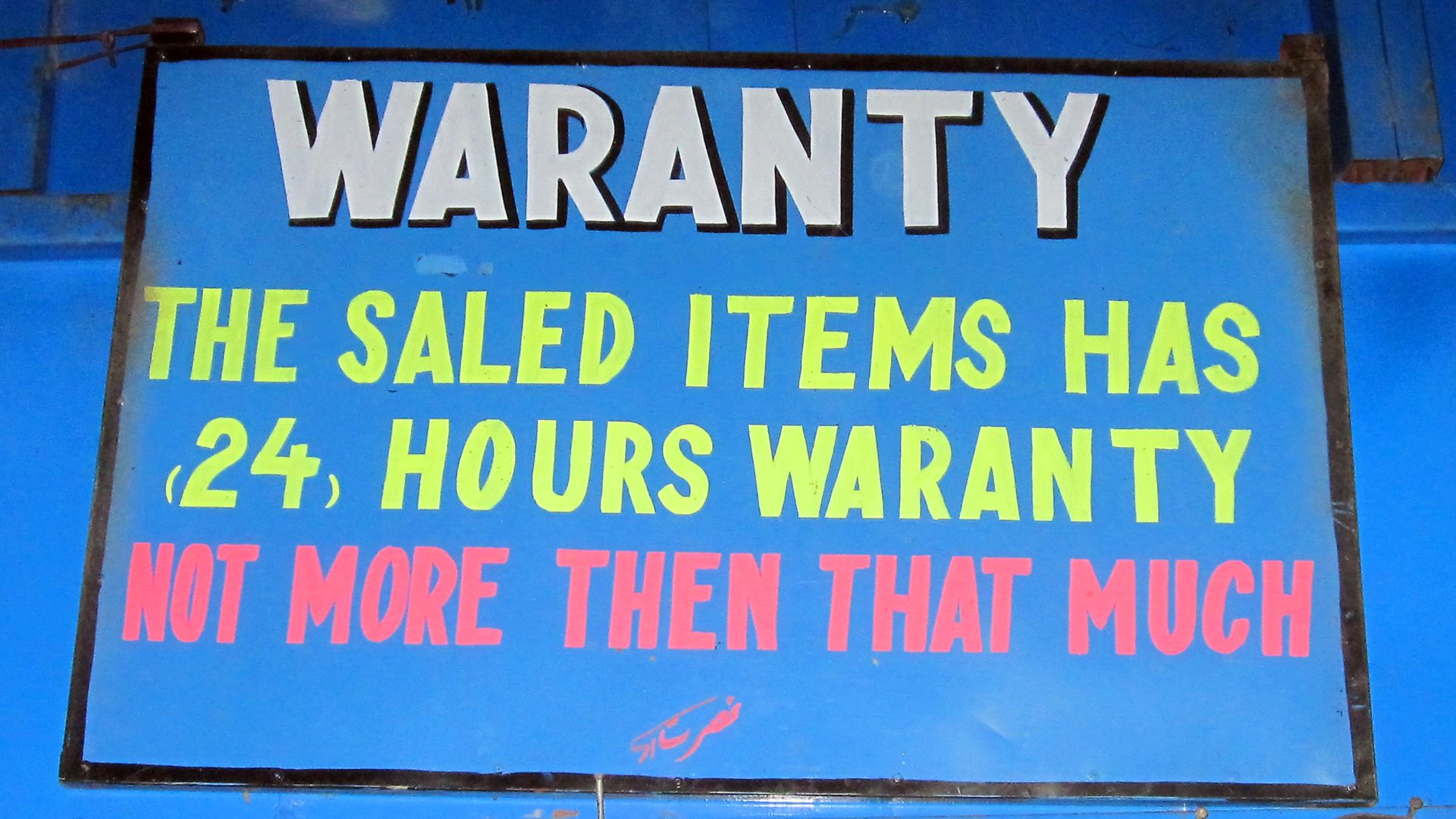 Mobilus In Mobili, Wikimedia Commons
Mobilus In Mobili, Wikimedia Commons
Not Learning RV Systems First
From electrical hookups to black water tanks, RVs are mini houses with their own quirks. Before your first trip, take time to learn how everything works. YouTube tutorials are a gold mine. Don’t be that person dumping gray water on their shoes at the campsite.
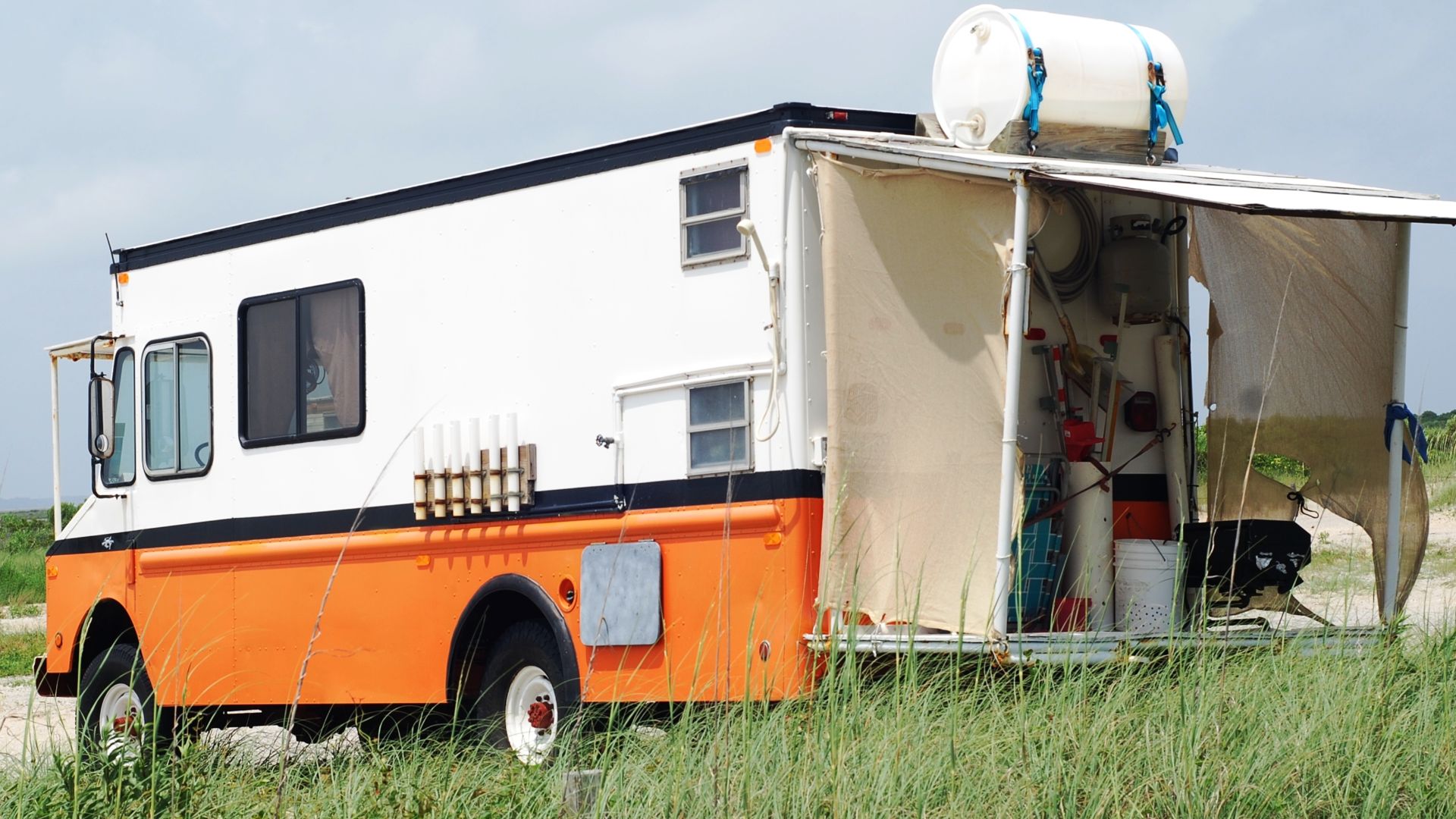 Jarek Tuszyński, Wikimedia Commons
Jarek Tuszyński, Wikimedia Commons
Assuming Full-Time RVing is Always Cheaper
Sure, you might save on rent—but full-time RVing comes with its own costs: fuel, campground fees, repairs, insurance, and more. Many full-timers spend just as much (or more) than they would living in a small apartment. Do the math based on your plans.
Not Planning for Internet Access
If you’re working remotely or just love Netflix nights, don’t assume campgrounds will have reliable Wi-Fi. They usually don’t. Look into mobile hotspots, cell boosters, or Starlink if you’ll need consistent connectivity on the road.
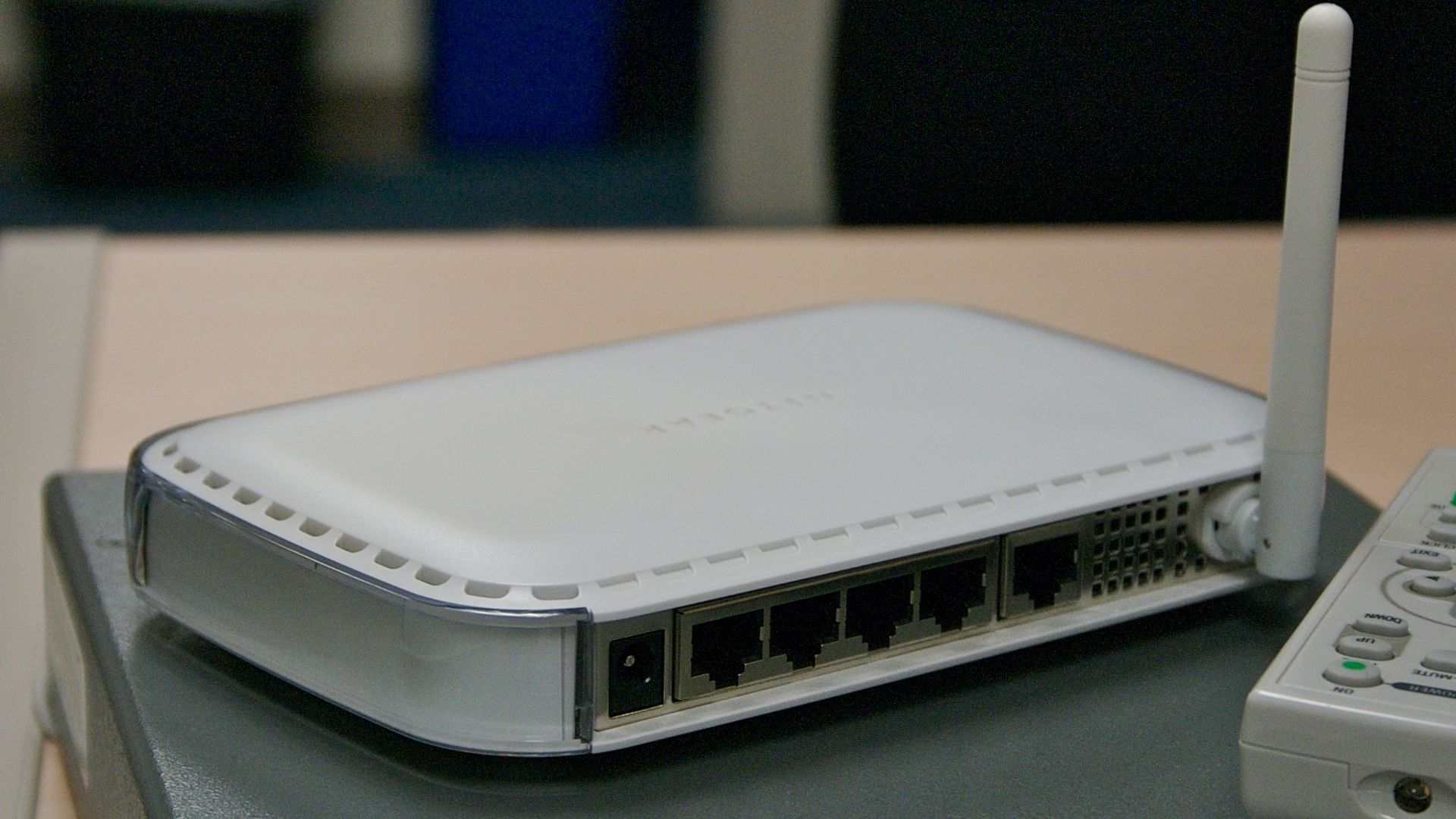 Encryptedruler, Wikimedia Commons
Encryptedruler, Wikimedia Commons
Ignoring Weight Distribution and Safety
Overloading one side of your RV or not balancing your trailer can cause serious driving problems. Use a weight distribution hitch if needed, and understand how cargo and fluid levels affect driving. Safety first—always.
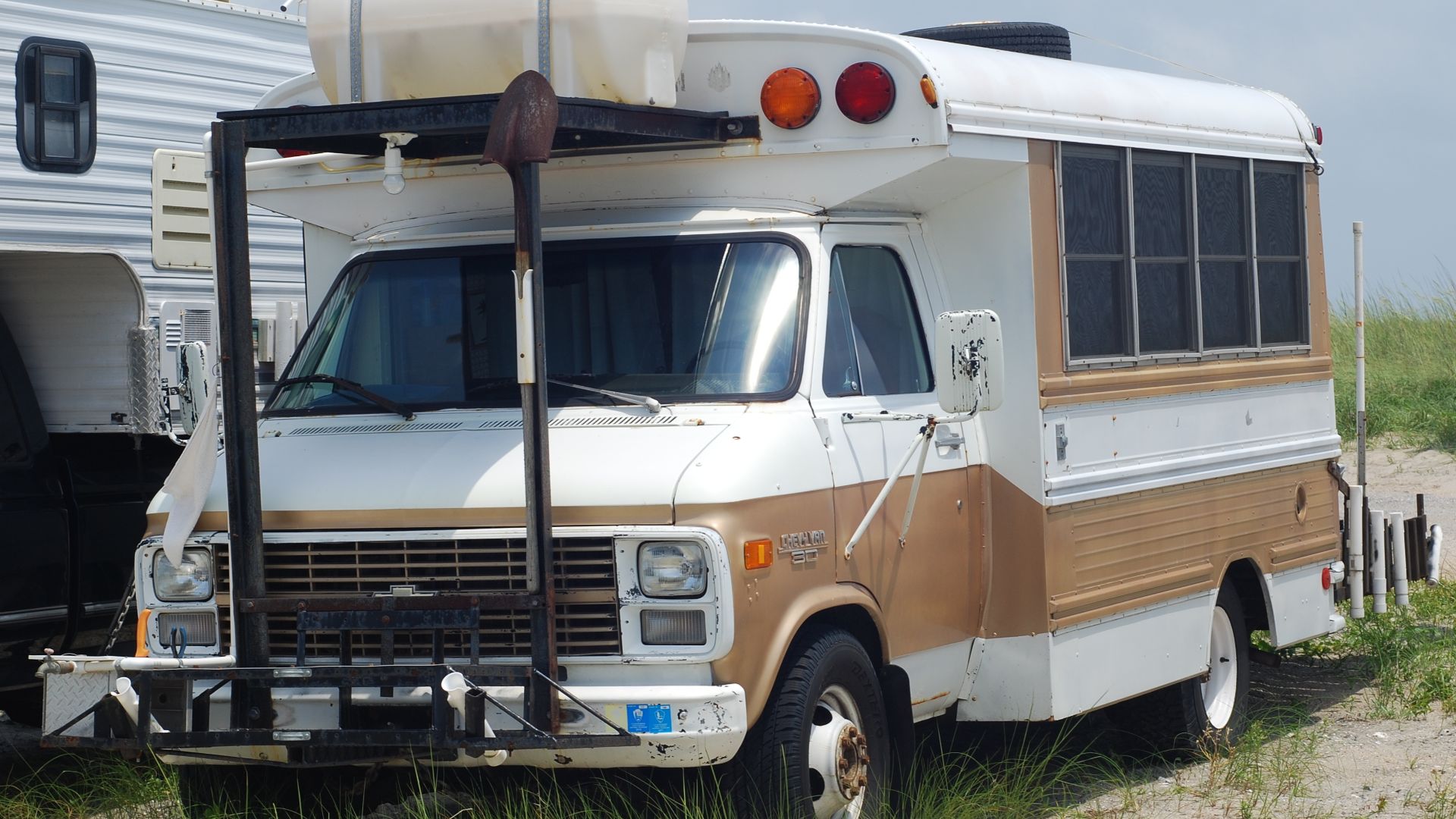 Jarek Tuszyński, Wikimedia Commons
Jarek Tuszyński, Wikimedia Commons
Overlooking Insurance Specifics
Not all insurance covers RVs equally. If you’re living in yours full time, you’ll need specialized RV coverage—not just an add-on to your auto policy. Check for things like roadside assistance, replacement value, and contents coverage.
Skipping the Practice Drive
An RV drives nothing like a car. Take your time learning how to turn, brake, reverse, and park before hitting the highway. Go to an empty lot and practice. Your bumper—and your nerves—will thank you.
 Veronica538, Wikimedia Commons
Veronica538, Wikimedia Commons
Relying Solely on Dealership Advice
Some dealerships are great. Others? Not so much. Always do independent research and get second opinions. Remember, they’re trying to sell you something—not necessarily educate you.
 Tyler A. McNeil, Wikimedia Commons
Tyler A. McNeil, Wikimedia Commons
Forgetting to Budget for Upgrades
Even new RVs usually need upgrades—better mattresses, backup cameras, solar panels, or water filters. Budget at least a few thousand dollars for improvements to turn your RV into something truly road-ready.
 Photo By: Kaboompics.com, Pexels
Photo By: Kaboompics.com, Pexels
Waiting Too Long to Use It
You didn’t buy your RV to park it in your driveway. Too many new owners wait months to take their first trip—by which time something might already be broken, expired, or unused. Plan a shake-down trip soon after purchase and start enjoying the ride.
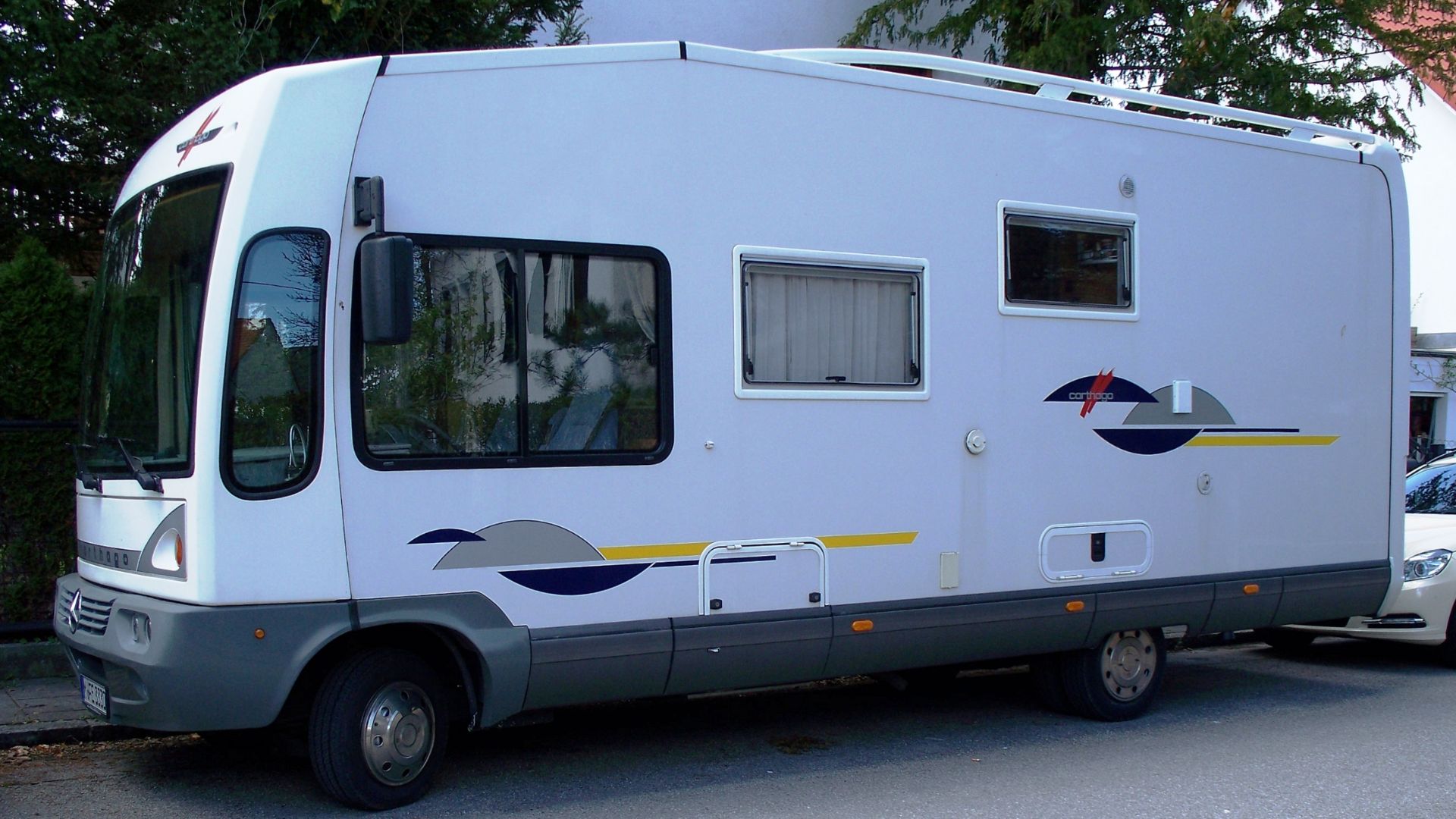 High Contrast, Wikimedia Commons
High Contrast, Wikimedia Commons
You Might Also Like:
Tips Every Driver Should Know Before Hitting The Road According To Car Enthusiasts

